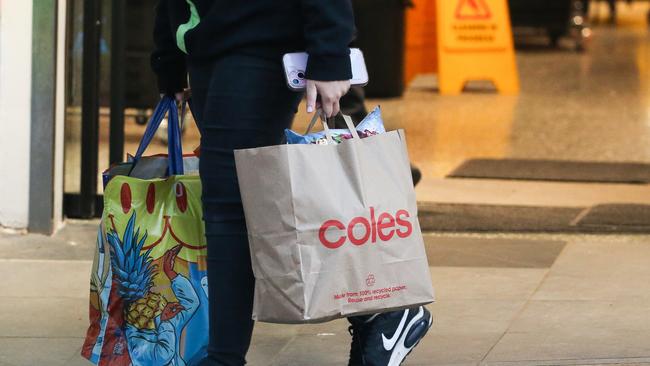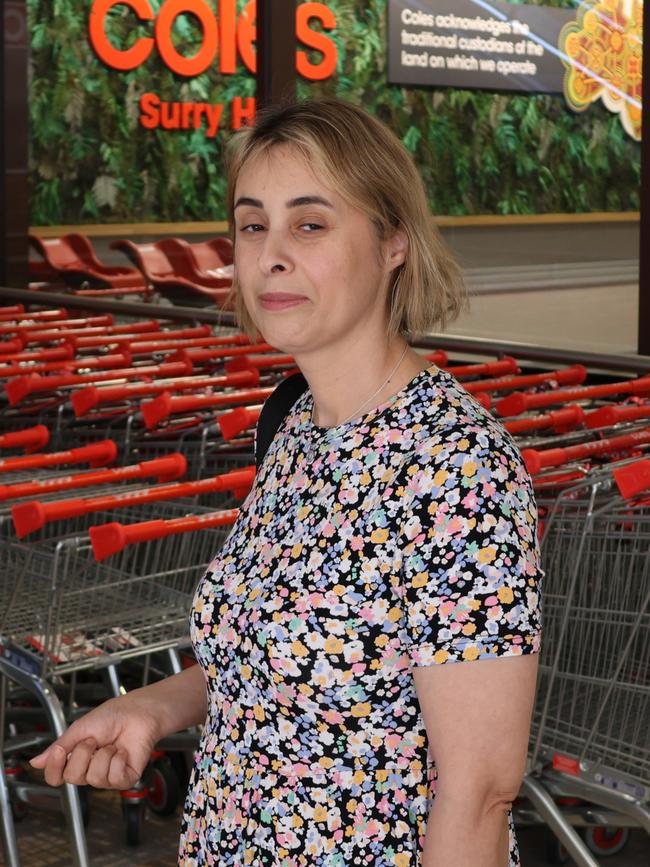Consumer advocates say deceptive pricing an ‘open secret’
Shoppers frustrated with supermarkets leaving ‘the little guy high and dry’ may not see immediate cost impacts from the ACCC’s legal action.

As Coles and Woolworths face allegations from the Australian Competition and Consumer Commission of “illusory” price drops, consumer advocates remain sceptical that the result will be broad cost relief, despite a likely win for transparency.
The dual lawsuits announced by the ACCC on Monday deal with the marketing of products, rather than the fairness of their pricing, leaving any effect on grocery bills “more indirect”.
It is alleged the major supermarkets took products with established price tags and quickly raised costs before reducing them to their initial price or above, allowing the promotion of reduced totals without sacrificing margins.
If found guilty, each of the supermarket giants could be on the hook for $50m, or 30 per cent of the corporation’s adjusted turnover during the period of the alleged breaches.
Consumers’ Federation of Australia chair Gareth Downing argued the Federal Court case was important to drive competition in the duopoly.
“These allegations do touch on really significant issues, both from a consumer harm standpoint, but also from a competition standpoint,” Mr Downing said.
“If you’re in a situation where pricing strategies are opaque, whether a price is actually a discount is unclear, that doesn’t drive the kind of competition you want to be seeing in a market.”
Mr Downing said it was likely, regardless of the ACCC’s legal outcomes, we would see improved practices from the two major supermarkets.
“These kinds of proceedings do tend to see organisations place a bit more focus on the conduct that has given rise to the allegations,” he said.
He also pointed to frequently shifting prices damaging the average consumer’s ability to gauge appropriate value for their groceries.
“Where products are more complex, where there’s more frequent movement of pricing, it is a lot easier to engage in this kind of conduct,” Mr Downing said.
“It’s actually quite difficult for most consumers to just disassemble what the relevant pricing inputs are.”
CHOICE campaigns and communication director Rosie Thomas said the struggle to find affordable goods was far from over.
“We think it’s unlikely that one court action on its own is going to alleviate that concern, and people will continue to be worried about the cost of groceries until we do see some relief at the checkout,” Ms Thomas said.
“(Proceedings) could take several years. That’s often what we find with ACCC actions against large companies.
“But even if it takes some time for the court to make any final judgments, we expect there will be a behavioural impact from the ACCC just taking this action.”
She said the items alleged to have been sold under misleading advertisements were discretionary purchases with a degree of inelastic demand.
“They’re nice-to-haves, rather than things that are absolutely essential,” she said.
“It does beg the question whether the supermarkets have identified the kinds of discretionary items where promotional practices can make a big difference to the volume that people might purchase.”


Shopper Brenda Kowalczewski had been driven to alternative grocers such as Harris Farm out of frustration with the “big two”.
“I feel really, really sorry for young families,” Ms Kowalczewski said. “There’s not enough competition. I think that these massive supermarkets leave the little guy high and dry.
“The thing that underpins everything is this greed for wealth. It’s not doing the right thing by people.
“Whatever the government says it’s doing, is it really doing enough?”
The ACCC has alleged Woolworths promoted 266 products deceptively, compared to Coles’ 245.
Recent migrant Josh McLaren called deceptive pricing an “open secret”.
“For things like dishwashing tablets, I’ll never buy those when they’re not on special,” he said, “Products like that when there’s no real shelf life on it I think they can get away with doing some funny business, whereas I think with fruit and veg, it’s hard to do that.
“They can give it a discount, but no one really trusts the prices.”
Nadire Dincer, 48, from Surry Hills in Sydney, said the fair price of common groceries was becoming harder to assess.
“We can’t make up our budgets, because one day it’s very reasonable … and another day I’ll go to the markets thinking I’m going to buy lots and make a feast, but the prices have gone up,” Ms Dincer said.
“We can’t see forward, until we enter the market … and the price will go up a lot more often.”




To join the conversation, please log in. Don't have an account? Register
Join the conversation, you are commenting as Logout